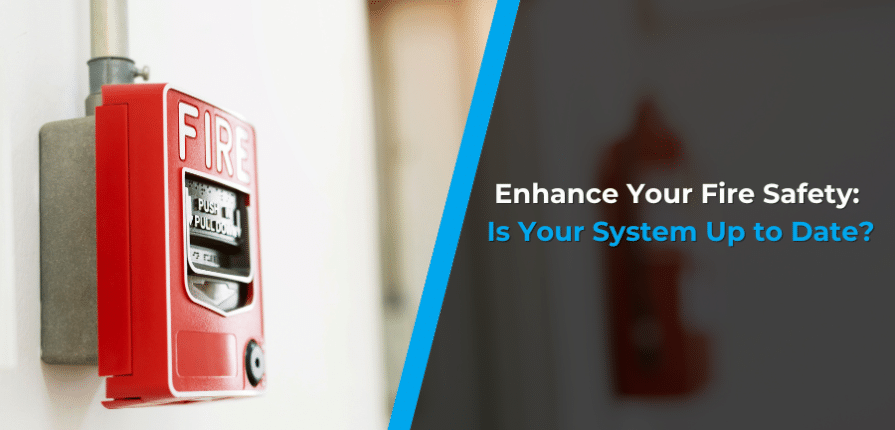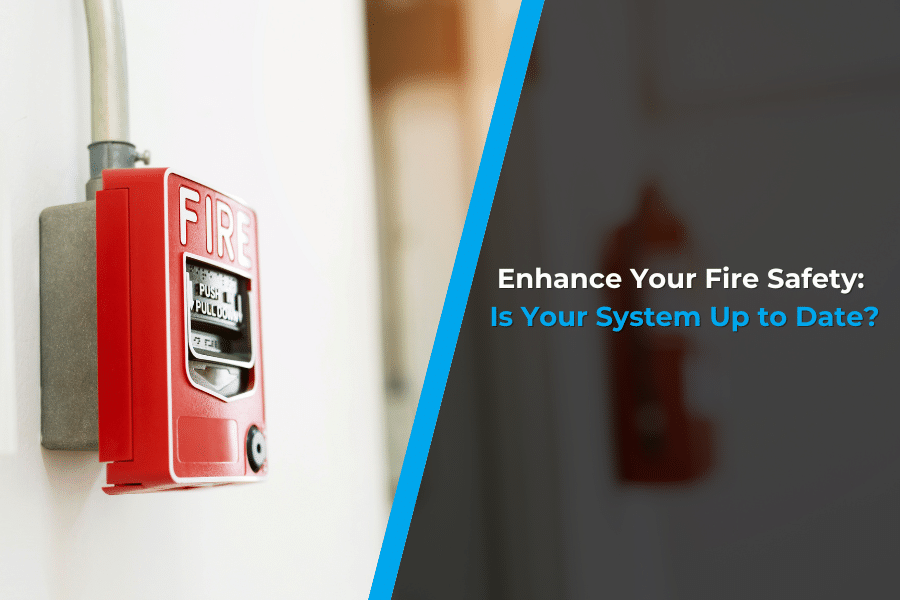When to Consider a Fire System Upgrade and Why: Ensuring Optimal Safety
Fire safety is a top concern for any organization or residential setting. An effective fire system can be the difference between minor inconvenience and catastrophic loss. As technology advances and regulations evolve, it’s essential to know when to consider a fire system upgrade and why it matters for the safety of your people and property.
The Need for Fire System Upgrades
While getting the most out of a fire system is important, it is also important to remember that no system or technology lasts forever. Age, changes in technologies, and other elements can all impact the effectiveness of a system. This is crucial when you’re considering life safety factors.
Learn More about Commercial Fire and Security Systems
Outdated Technology: If your fire system is over a decade old, it might need to be updated. Modern fire detection and suppression systems have advanced sensors, communication capabilities, and monitoring features, significantly enhancing overall effectiveness.
Changing Regulations: Fire safety regulations are continually updated to reflect the latest industry standards and best practices. If your current system doesn’t meet these standards, you risk fines, legal liabilities, and, most importantly, the safety of occupants.
Expansion or Renovation: If your building undergoes expansion or renovation, your existing fire system might only cover part of the area adequately. A fire system upgrade ensures that the new spaces are integrated into the safety network seamlessly.
Increased Occupancy: As your building’s occupancy increases, the demands on your fire safety system also grow. Upgrading your system allows for better scalability, ensuring that it can handle a larger number of occupants effectively.
System Malfunctions: Frequent false alarms or system malfunctions can indicate that your fire system is nearing the end of its operational life. Investing in an upgrade can save you from costly false alarm call-outs and ensure that the system operates reliably when needed.
Benefits of Fire System Upgrades
The effects of a fire can be costly, devastating, and catastrophic, making fire system upgrades a serious consideration.
Enhanced Detection: Modern fire detection systems utilize advanced sensors that can detect fires at their earliest stages, minimizing response time and potential damage.
Integration and Automation: Upgraded systems can be integrated with other building management systems, allowing for better control and automation. This means that, in case of a fire, the system can automatically trigger actions like closing fire doors, activating ventilation systems, and notifying emergency services.
Remote Monitoring: Many modern fire systems offer remote monitoring capabilities. This means that authorized personnel can receive real-time alerts and access the system’s status from their smartphones or computers, improving response time even when they’re not on-site.
Reduced False Alarms: Advanced fire systems are less prone to false alarms. This helps prevent unnecessary evacuations and alarm fatigue among occupants.
Improved Maintenance: Upgraded systems often come with enhanced diagnostic features that can detect faults or maintenance needs. This proactive approach allows for timely repairs, reducing downtime and ensuring the system’s reliability.
Compliance and Liability: By upgrading to a system that adheres to current fire safety regulations, you reduce the risk of non-compliance fines and legal liabilities in case of an incident.
The Decision-Making Process
When considering a fire system upgrade, it’s essential to go through a comprehensive decision-making process.
Assessment: Conduct a thorough evaluation of your current fire system’s performance, considering its age, functionality, and compliance with regulations.
Consultation: Consult a reputable fire safety expert who can guide you on the best course of action based on your needs and budget.
System Design: Work with professionals to design a system that aligns with your building’s layout, occupancy, and specific fire risks.
Installation: Choose a qualified provider to install the new system, ensuring proper integration and functionality.
Training: Train your staff on using the upgraded system effectively and responding appropriately in a fire emergency.
Maintenance: Establish a regular maintenance schedule to keep the system in optimal condition and address any potential issues promptly.
Upgrading your fire system is not just about compliance—it’s about safeguarding lives and property. By staying current with technology and regulations, you can ensure that your fire safety measures are robust, reliable, and ready to respond when it matters most. Remember, investing in a fire system upgrade today is an investment in a safer tomorrow.
About Electronic Security Corp
Electronic Security Corp has proudly led the security industry for over 40 years. The company was one of the first commercial integrators in the country to provide CRZH UL 2050 installations and monitoring to government contractors needing high-level security protection. The company proudly serves Pennsylvania, New Jersey, Delaware, Maryland, and Virginia.
Call ESCA today for more information at 1-800-224-3722



